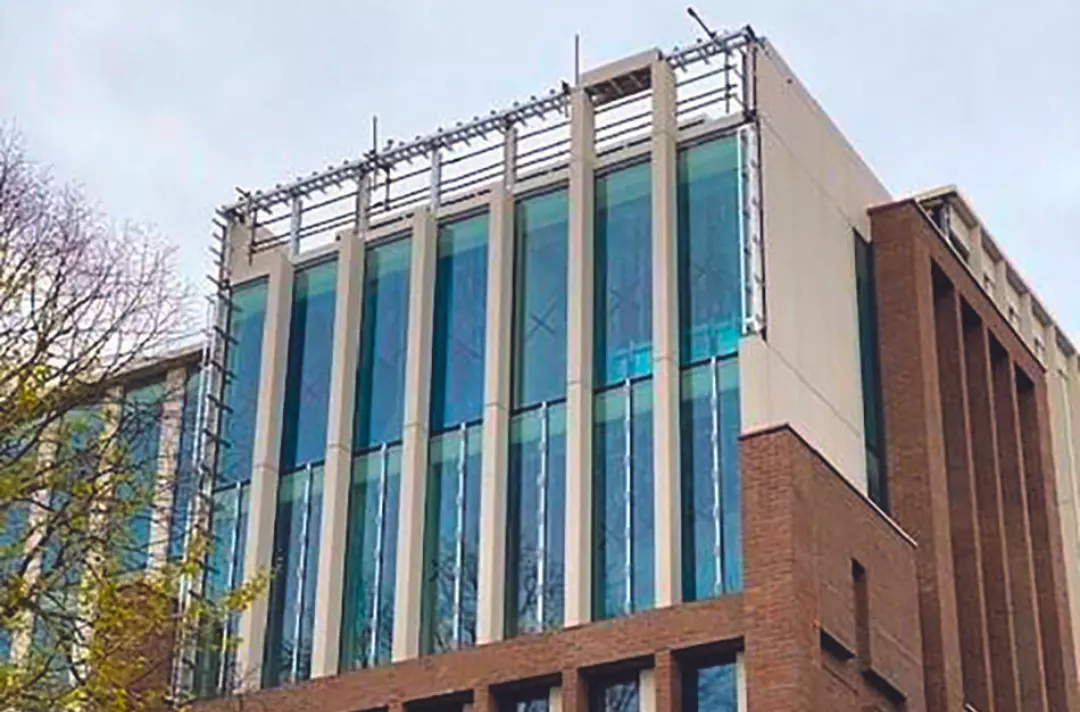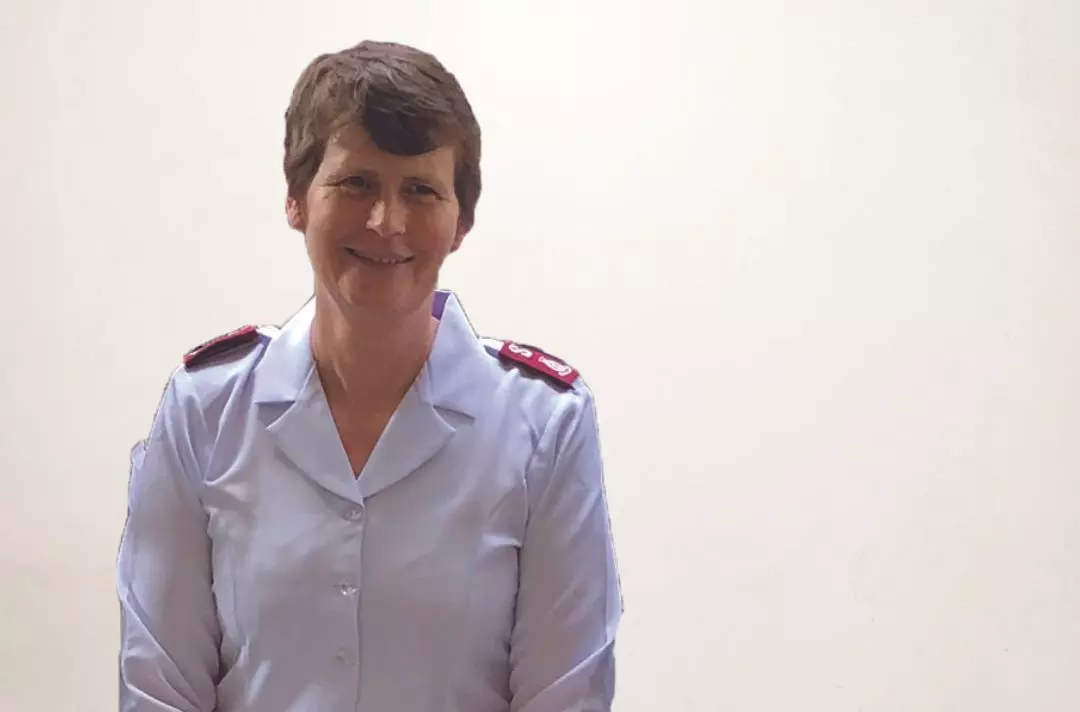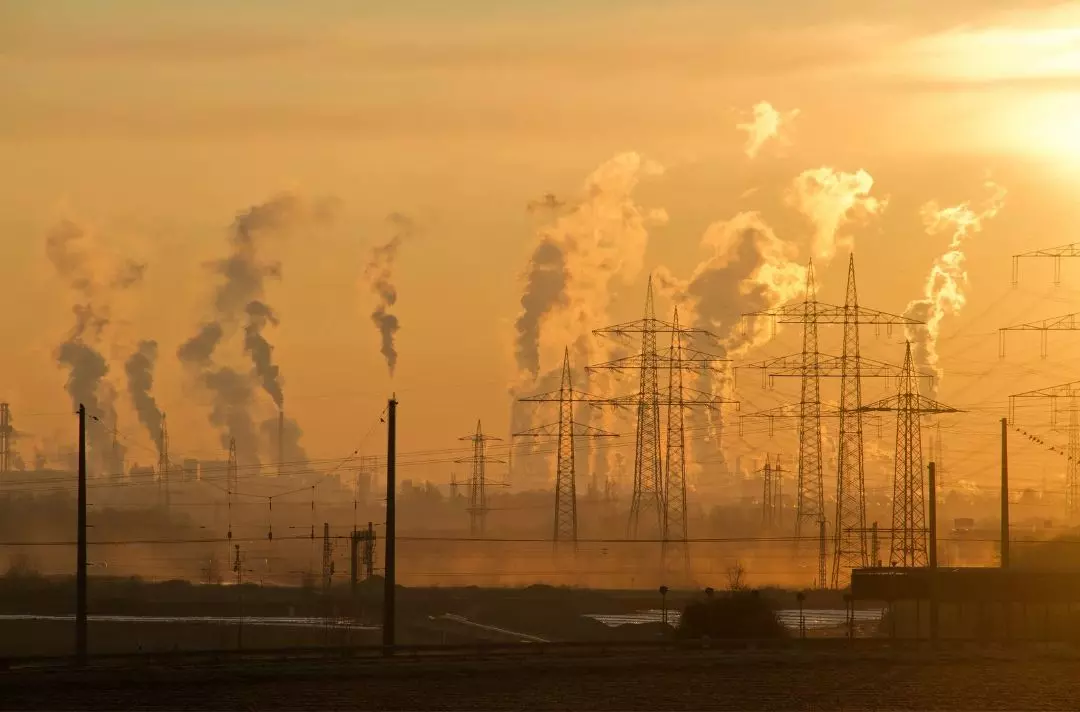
Major Heather Poxon talks to Simon Hope about the Army’s goal to halve its carbon footprint by 2030.
On World Environment Day (5 June), The Salvation Army in the UK and Republic of Ireland is declaring a climate emergency.
The declaration is an extension of the territory’s care for creation mission priority and recognises solidarity with people and organisations the world over who are taking a serious stance on fighting climate change.
- Territorial Environmental Officer: Heather outlines her role.
- International Positional Statement on Caring for the Environment: A breakdown of the Army’s understanding of environmentalism.
As the territorial environmental officer, Heather had a key role in drafting and developing the declaration. The Army’s science-based target is to reduce its carbon footprint by at least 50 per cent by 2030. Heather assuages any concern that this goal is empty words by outlining the organisation’s ‘willingness at every level’ and ‘priority to invest’, adding: ‘The Army has already invested in sustainability expertise across the territory!’
So what does this look like practically? Alongside creating Heather’s position – a new role – the organisation has renewed its ISO 14001 environmental standard certificate. An environmental committee comprising members from a range of departments – including Research and Development, Finance and Resources – is now monitoring the Army’s environmental impact. A smaller sustainability group meets every month to address the practicalities of proposals, such as tracking a path to net zero carbon emissions. For example, a baseline survey of the territory’s property portfolio has found where emissions are worst, highlighting areas that need more attention.
Some groups, however, have already taken the initiative. Way back in 2009, Woking Corps was the first UKI Army property to install solar panels on its hall. So far, 18 corps have installed solar panels with the help of legacies and fundraising efforts, and at least 10 other installations are in development. Solar panels cost about £1,300 per kilowatt peak (kWp). Twenty panels, for example, would cost in the region of £10,530 to install.
Hadleigh Farm has also taken creative approaches to improve its sustainability, along with Strawberry Field, which has rooftop solar panels and makes every effort to be waste-conscious, recycle and reduce single-use plastic.
- Hadleigh Farm: Estate Director Ciaran Egan shares how his faith and his role are intertwined.
- Eco church: Mission and environmentalism intertwine at Forest of Dean Corps.
The new THQ building, which opens later this year, is aiming for a rating of ‘Excellent’ with BREEAM – the world’s leading measure of building sustainability – ensuring it is in the top 10 per cent non-domestic sustainable buildings in the UK. Its design includes solar panels, energy-saving measures and bicycle facilities for staff members, as well as bat-boxes in the surrounding wooded areas of the plot.
On a local level, one easy way that corps are approaching sustainability is by switching to eco church models. Heather hopes that 30 per cent of the territory will be registered as ‘eco corps’ by the end of the year – at present, 5 per cent are registered. Nevertheless, with the Army’s first silver Eco Church award at Watford Corps joining 11 more bronze awards, momentum is building.
At the core of the eco corps push is the environmental champions network, which is growing by the week. This community of hope and enthusiasm is uniting and empowering people to spearhead local eco projects, which are blossoming wider than Heather ever imagined. And this unity is an important component in pursuing lasting change.
Heather highlights the importance of the No Faith in Fossil Fuels pilgrimage to parliament, which took place in London last month: ‘We can recycle all our paper, but the government needs to bring in policy that drives deep significant change. A government is about listening to its people and responding to their needs, so we must raise our voices. We need to write to our MPs and get involved in local councils to make this matter.’
She describes donning her uniform that morning as ‘putting my battle dress on’, affirming that this ‘won’t be the last time we’re out’.
- No Faith in Fossil Fuels: Major Nick Coke reports on the Army’s involvement in the event.
- Uniform Takeback Scheme: Captain Jo Moir introduces a new initiative for pre-loved Army uniforms.
But denouncing fossil fuels raises an important question: what about the Army’s fleet? While many of the territory’s vehicles are now hybrids, conversations are ongoing about making the switch to electric. In fact, 70 per cent of the Salvation Army Trading Company Ltd’s (SATCoL) company cars are already electric. SATCoL has long made a positive environmental impact by giving new life to unwanted items through its charity shops and, more recently, its new Uniform Takeback Scheme, but projects also include turning waste into usable blankets and worn-out jeans into bags.
While progress has been made on many levels, significant investment of time, money and expertise is needed to meet the Army’s targets. With talks on the table of aiming to be net zero by 2040, there’s still a lot to be done.
‘Our incentive is missional,’ Heather reminds me. ‘This is about God’s creation! We’re starting to feel the impact, whereas before it’s always been a problem for somewhere else or future generations. But we’re a justice movement, and we cannot be responsible for this injustice anymore.
Written by

Simon Hope
Editorial Assistant
Discover more
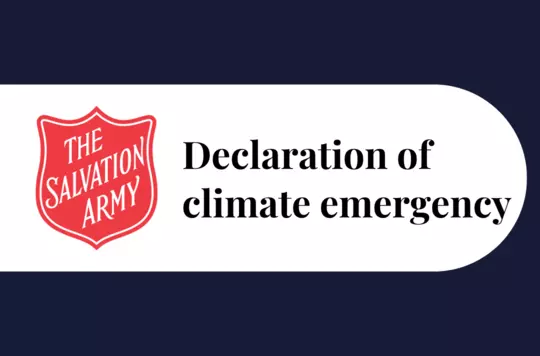
The Salvation Army in the UK and Ireland, Channel Islands and Isle of Man declares a climate emergency.
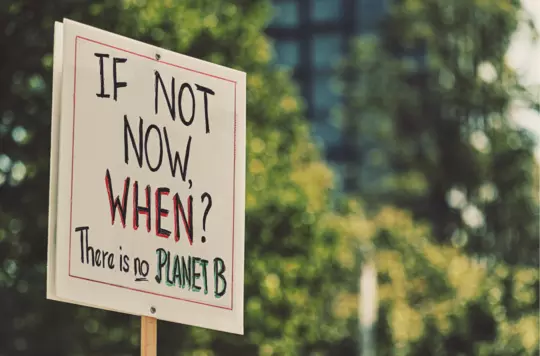
Cadet Lizzy Kitchenside reflects on taking part in the No Faith in Fossil Fuels pilgrimage to parliament.

University student Yelena Grase Jurkenas shares seven eco-friendly habits and reflects on God’s invitation to care for creation.
